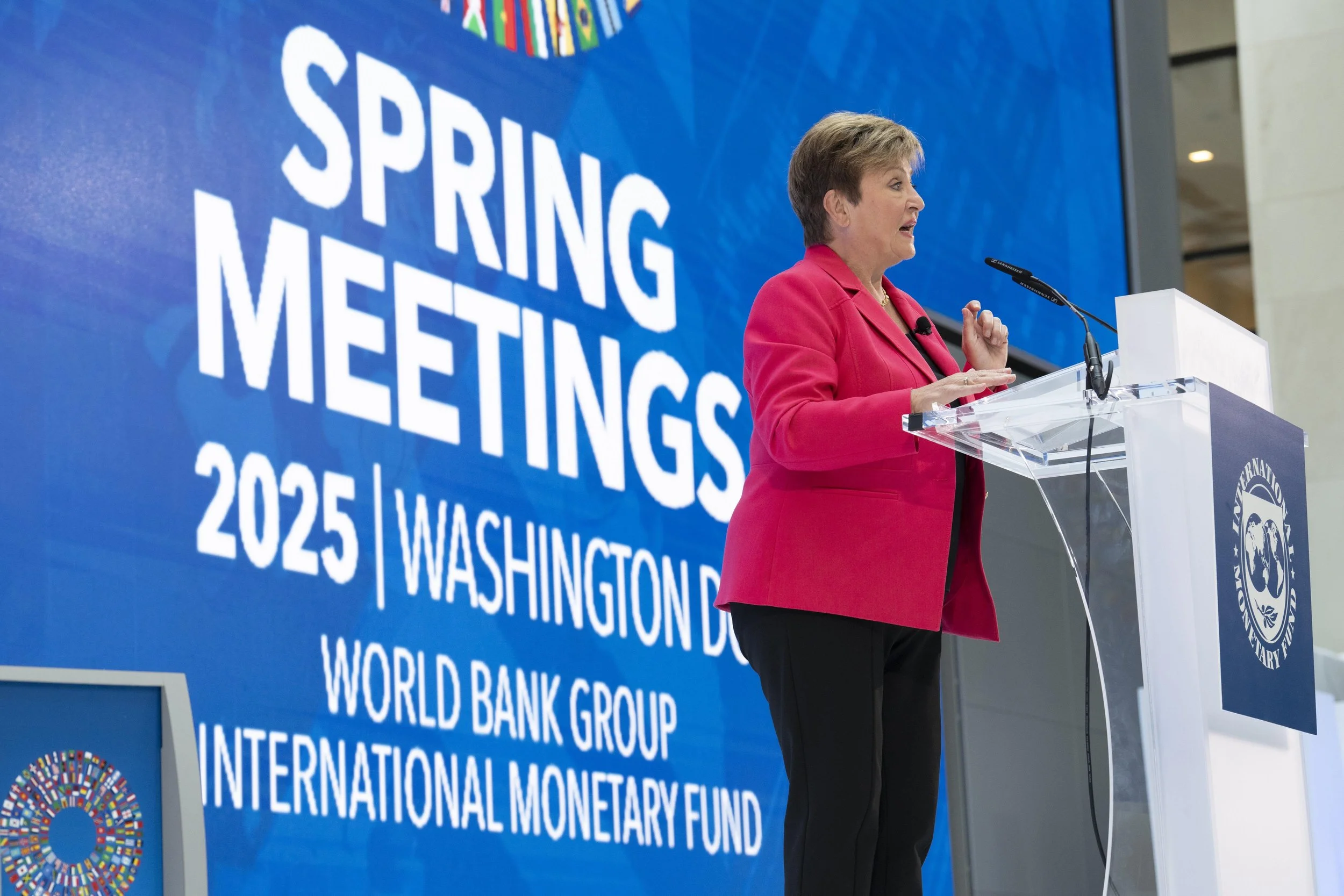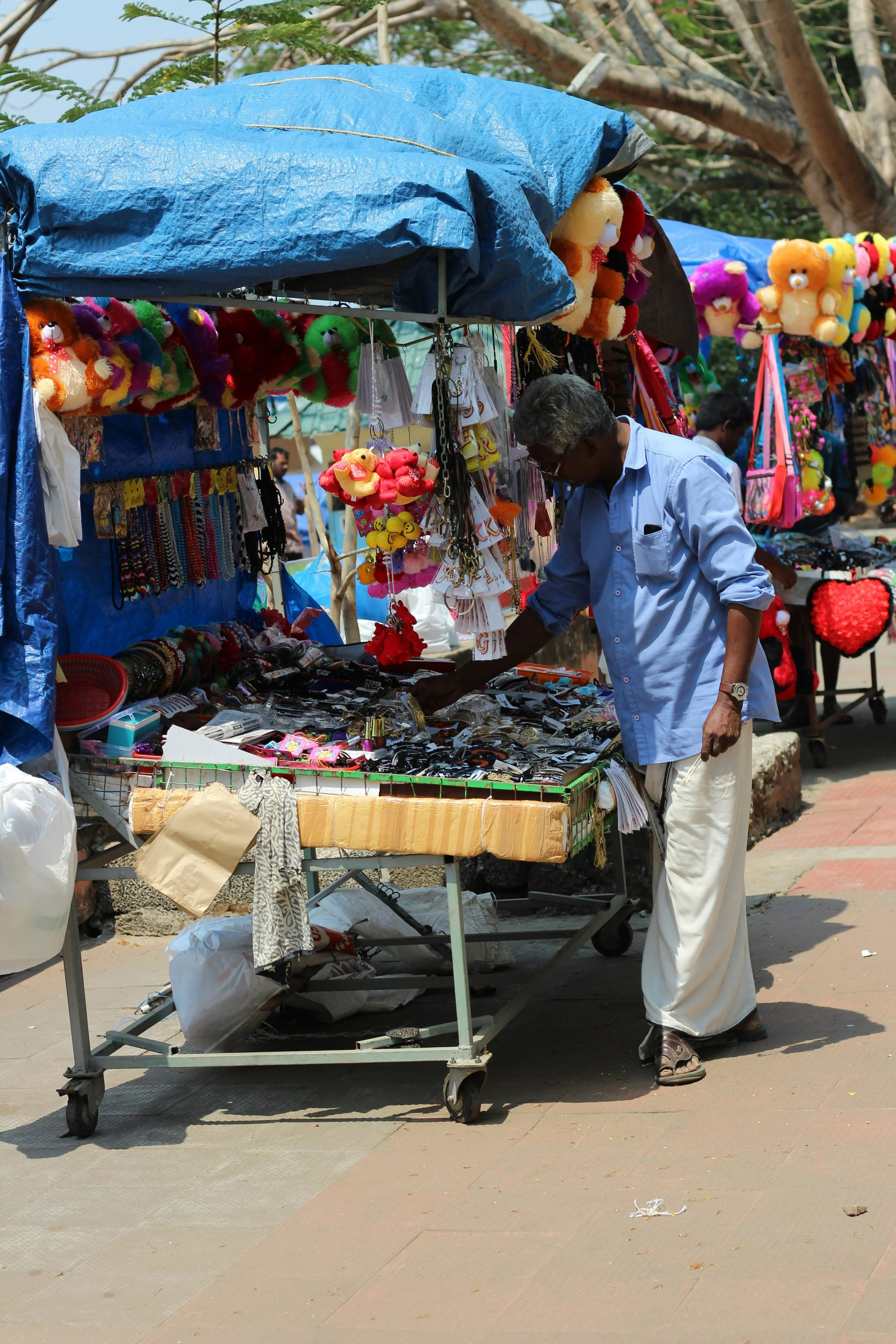Building a Resilient Global Economy: Why Swift Action Matters Now
Kristalina Georgieva, an economist and former Chief Executive of the World Bank, has served as Managing Director of the International Monetary Fund (IMF) since 2019
As world leaders and policymakers gather for the 2025 IMF–World Bank Spring Meetings, one message rings louder than ever: the time for bold, cooperative action is now.
Kristalina Georgieva, an economist and former Chief Executive of the World Bank, has served as Managing Director of the International Monetary Fund (IMF) since 2019. Known for her steady leadership during times of global turbulence, Georgieva has consistently championed international cooperation, resilience-building, and inclusive economic reforms.
“Uncertainty is very costly. Without it, businesses do not invest, households do not spend, and growth weakens further. We must act swiftly to restore stability and confidence in the global economy.”
In her remarks this week, IMF Managing Director Kristalina Georgieva emphasized three urgent priorities shaping the global economic outlook: priorities that demand swift, coordinated efforts across the world's major economies.
First, the need to resolve trade tensions and restore certainty. According to the IMF’s latest data, global growth is projected at 3.3% for 2025 and 2026, still below the historical average of 3.7%. Trade barriers, tariffs, and policy uncertainty have shaved nearly 0.8 percentage points off global growth compared to pre-pandemic projections. Without clear and predictable trade policies, businesses hesitate to invest, households choose saving over spending, and economic momentum weakens further. The IMF's call is clear: major economies must come together to lower trade barriers, settle disputes swiftly, and address underlying macroeconomic imbalances. China, for instance, is encouraged to boost private consumption. The United States is urged to narrow fiscal deficits (projected at 6.3% of GDP in 2025), and Europe must finally complete the Banking Union and Capital Markets Union to stimulate intra-EU growth.
But the risks go far beyond slowing growth. As highlighted in the latest World Economic Outlook, "intensifying downside risks dominate the outlook."
A further ratcheting up of trade wars could trigger sharp asset repricing, volatile capital flows, and serious financial instability, particularly in economies already grappling with debt distress. A shrinking foreign labor force, lingering effects of the cost-of-living crisis, and exhausted policy buffers could ignite new waves of social unrest. Without decisive action, the fragile resilience shown by many emerging markets could rapidly erode.
On the upside, the report notes, de-escalation of tariffs and greater clarity in trade policies could lift global growth but only if countries act together, and act now.
Second, countries must safeguard economic and financial stability by "getting their house in order." The global public debt-to-GDP ratio, which hit a record 98% in 2020, is only slowly declining—and remains over 20 percentage points higher than pre-pandemic levels. Fiscal buffers are dangerously thin, especially in low-income economies. More than 40% of low-income developing countries are either in debt distress or at high risk.
The IMF stresses that restoring fiscal space and putting public debt on a sustainable path are urgent priorities. Governments are encouraged to craft credible medium-term fiscal consolidation plans, protecting critical spending needs while rebuilding resilience for future shocks.
Third, and perhaps most vital for long-term prosperity, countries must double down on growth-oriented reforms.
Even before COVID-19 and recent shocks, the global economy was grappling with historically low productivity growth—averaging just 1.2% annually in advanced economies between 2010 and 2019.
Structural reforms in labor markets, financial systems, and product markets are essential to lifting potential growth, reducing debt burdens, and narrowing cross-country disparities.
The IMF itself is stepping up. Georgieva outlined the Fund’s renewed commitment to: deliver strong surveillance across 190 member countries, strengthen the Global Financial Safety Net, promote faster debt restructurings through the Global Sovereign Debt Roundtable, whose newly agreed playbook will streamline processes for debtor and creditor nations alike.
Ghana entered into a $3 billion IMF-supported program to stabilize its economy and restore fiscal sustainability.
Ghana’s experience is a reflection of these broader regional challenges.
Faced with soaring inflation that peaked at over 54% in early 2023, a sharp currency depreciation, and a heavy debt burden, Ghana entered into a $3 billion IMF-supported program to stabilize its economy and restore fiscal sustainability.
Progress has been made: inflation is easing, the cedi has shown signs of greater stability, and fiscal consolidation efforts are underway. However, vulnerabilities remain.
The IMF has recommended that Ghana prioritize: Strengthening domestic revenue mobilization to reduce reliance on external borrowing. Maintaining tight and credible monetary policy to anchor inflation expectations and protect exchange rate stability.
Safeguarding social protection spending, ensuring that vulnerable populations are shielded from the impacts of necessary fiscal adjustments.
Advancing structural reforms to boost private sector-led growth, particularly in agriculture, digital innovation, and energy.
Ghana’s journey underscores a broader truth: while international support is vital, sustainable recovery ultimately depends on bold domestic policy choices, consistent reform momentum, and strong public trust.
As the world turns the page on another year of economic uncertainty, the window for decisive action is still open. The choice is ours to make.
Beyond the technical measures and urgent warnings, Georgieva’s tone throughout the Spring Meetings has been one of steady resolve and shared responsibility.
In her own words:
“Shared challenges require shared solutions. In a more shock-prone world, building resilience, promoting cooperation, and securing sustainable growth are not choices—they are necessities.”
Her message reflects not just an economic diagnosis, but a vision for a global system built on solidarity, innovation, and sustainable action.
Dela Michel is a journalist, digital content creator, and founder of DM Media Production, specializing in global affairs and strategic communications.

